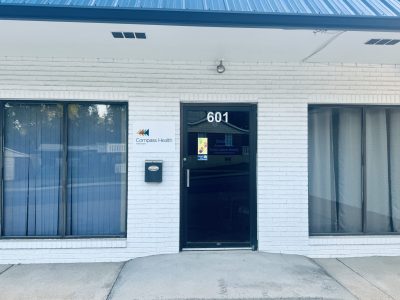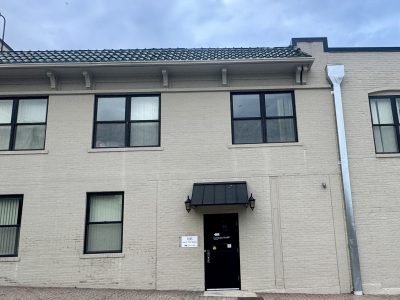
Nurse Practitioner Week
Nurse Practitioner Week
Nurse practitioner is one of the fastest-growing career fields in the United States. More than 266,000 Americans qualify to serve as a nurse practitioner.
By 2032, this number will increase by a staggering 45%. This growth rate is much higher than the national average.
It comes as no surprise to see the growth in nurse practitioners. This position is critical to the nation’s healthcare system. Without them, life expectancy would certainly decline, and Americans would be sicker.
This week is one to celebrate nurse practitioners and their positive role in health care. Read on to learn all about National Nurse Practitioner Week. Explore topics such as the theme for Nurse Practitioner Week and what the position entails.
What Do Nurse Practitioners Do?
Before diving into NP week, it is important to understand what nurse practitioners do. Nurse practitioners fill the nation’s growing doctor shortage. By 2033, medical experts believe there will be a shortage of up to 139,000 physicians.
Nurse practitioners do many of the same things as primary care doctors. They evaluate patients and diagnose ailments.
Nurse practitioners order and perform diagnostic tests. They evaluate the results of those tests and prescribe medicine or treatments accordingly.
Also, nurse practitioners create patient care plans and follow up regularly to check the progress. They also take and review patient’s medical history to identify potential health risks.
What Is NP Week?
NP Week intends to raise awareness for this critical position. Additionally, organizers seek to remove barriers that prevent nurse practitioners from doing their job to the fullest.
There is still a stigma in the medical industry that only doctors can perform the tasks listed above. However, this thought process is inaccurate and does not reflect a nurse practitioner’s education and training.
By celebrating nurse practitioners, positive attention is brought to the career field. Organizers can instill confidence in nurse practitioners’ capability in patients and medical providers.
What Is the Theme for NP Week?
The theme for NP week is “Recognizing Heroes in Health Care.” To help recognize nurse practitioners, organizers received 46 proclamations from state governors and local elected officials.
Nurse practitioners see more than 1 billion patients per year. They were instrumental during the COVID-19 pandemic as many medical offices and hospitals were overwhelmed with patients.
Nurse practitioners often work in urgent care and other family medicine centers. These facilities received thousands of COVID-19 patients in Missouri alone. Every day, nurse practitioners and other healthcare workers put their lives and long-term health on the line to visit with COVID-19 patients.
Your Guide to Celebrating Nurse Practitioner Week
You are now ready to do your part and spread the word about the incredible role that nurse practitioners play in the healthcare industry.
Compass Health Network relies on nurse practitioners to treat Missouri’s citizens. If you want to help celebrate National Nurse Practitioner Week, contact us today at Compass Health Network to see how you can get involved.
Children’s Advocacy Center
Children’s Advocacy Center
If you suspect child abuse, please call the Child Abuse Hotline at 1-800-392-3738 or contact your local law enforcement agency
Our mission is to facilitate a community-based collaborative effort to improve the system’s response to allegations of child abuse and neglect by following the ChildFirst Doctrine

CHILDREN FIRST
COMMUNITY COLLABORATION
SAFE INTERVIEWS
ADVOCACY
SERVICES
BENEFITS
- Restructure the interview process to meet the needs of the child
- Fewer interviews lead to less trauma to the child
- Collaborate between agencies involved in child abuse investigations
- Identify needed services for the child and family
- Provide mental health services for the child and family
- Provide coordination and collaboration of medical services
- Identify gaps in services and the investigation process
- Provide specialized training for staff and multidisciplinary teams
- Provide quality assurance through case review with all agencies involved
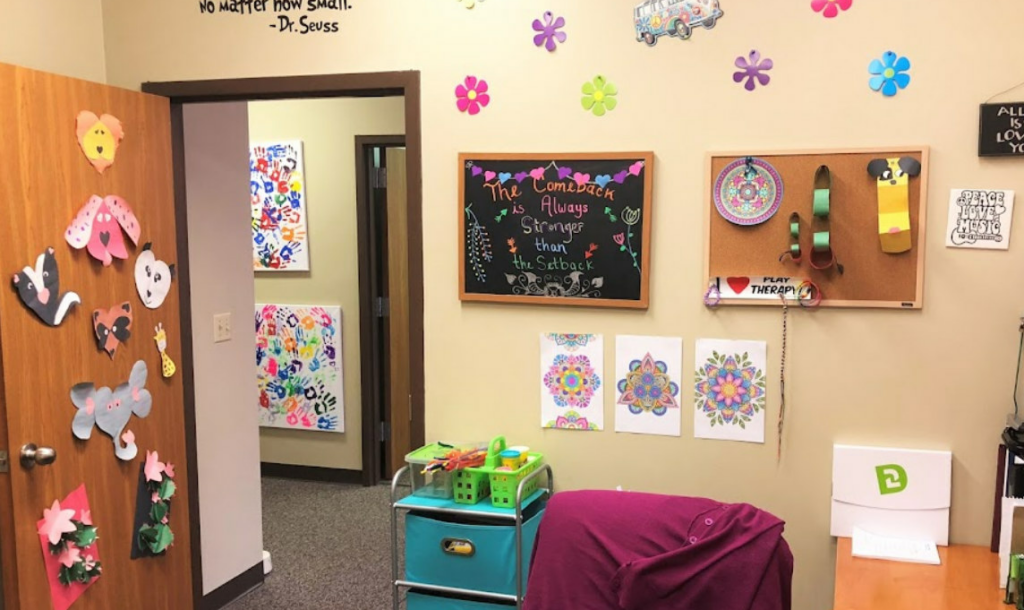
Child and Family Therapist Office
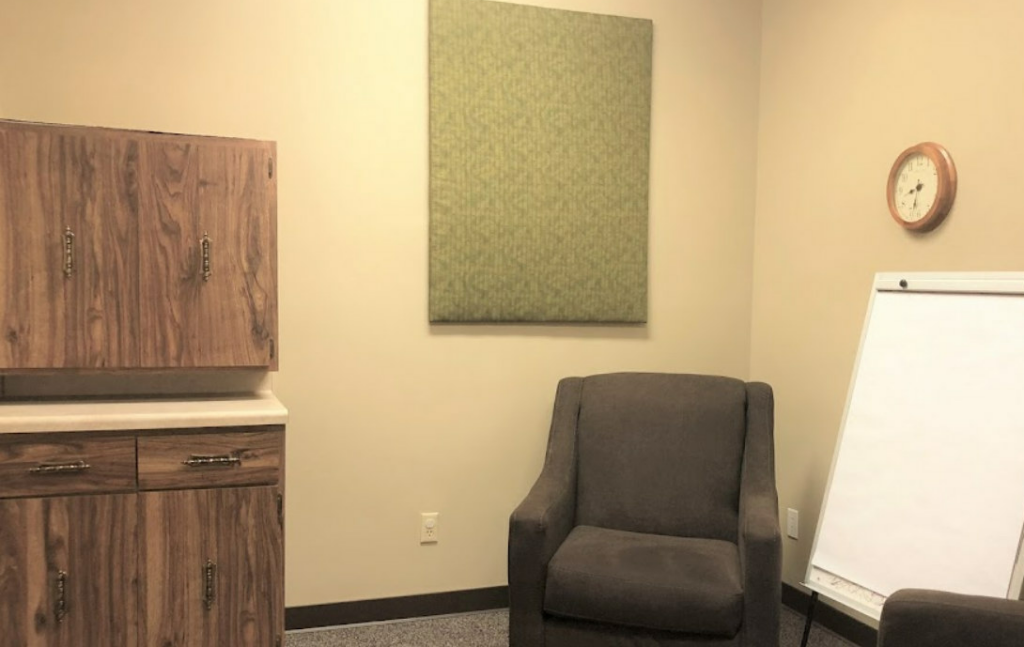
Child Interview Room
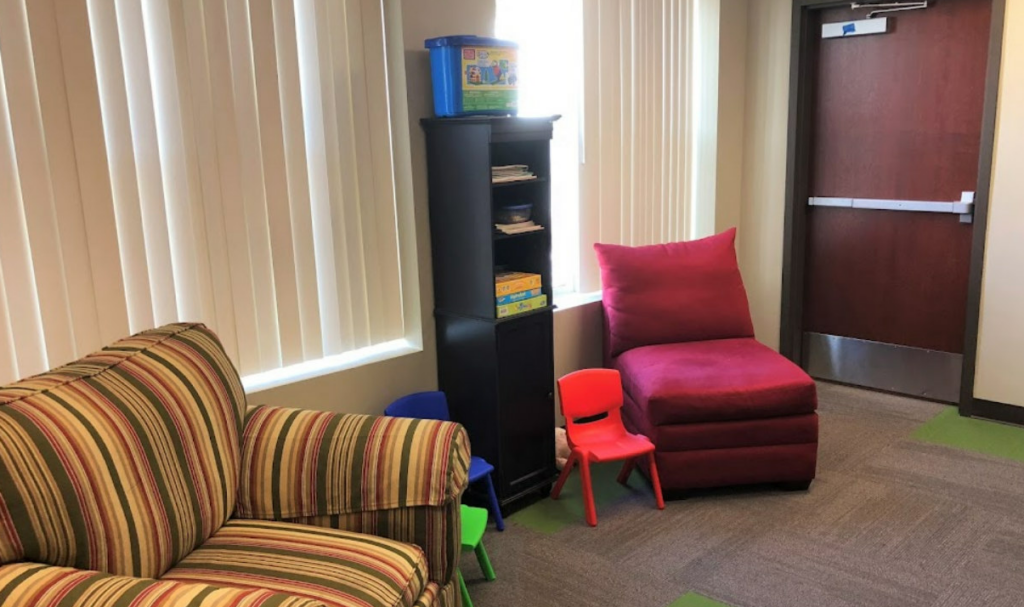
Child-Friendly Waiting Area
TEAMWORK
At present, the counties served by the CAC and similar agencies across the nation are faced with this reality: many of our children are being abused.
Each year, the CAC and its multidisciplinary team members investigate numerous cases of suspected physical and sexual child abuse while providing services to children and their families.
The CAC offers a coordinated, multidisciplinary intervention system involving agencies and the community.
- The Children’s Division
- The Prosecuting Attorney’s Office>
- Law Enforcement
- The Juvenile Office
- Medical Personnel
- Mental Health Professionals
- CAC Staff
- Community Volunteers
We are a part of a nationwide effort to reduce the trauma of abuse, so children are not re-victimized by the system designed to protect them.
In the past, victims seeking help faced multiple contacts with different community professionals, creating a maze of confusion for the child and family.
With the support of the community, the CAC enables the child to visit one location for safety, protection, and justice instead of going from agency to agency.
- Kimberly Kemerer—Executive Director
- Britney Argurieo—Festus Family Advocate
- Audrey Tilley—Festus Forensic Interviewer
- Chrissy Lewis—Festus Child & Family Therapist
- Ciara Hogendobler—Jefferson County Prevention Specialist
- Hannah Goldsmith—Farmington Family Advocate
- Samantha Harris—Farmington Forensic Interviewer
- Rene Killian—Farmington Child & Family Therapist
- Jessica Feth—Union Family Advocate
- Lori Dotson—Union Forensic Interviewer
- Amy Hall—Union Child & Family Therapist
- Avalon How—Franklin County Prevention Specialist
- Matt Lindemeyer – President – Missouri State Technical Assistance Team – Field Investigator
- Matthew Becker – Vice President – Franklin County Prosecuting Attorney’s Office – Prosecuting Attorney
- Ms. Cindy Vessel – Board Secretary – Senior Director of Community Services – Compass Health Network
- Matthew Corbett – Member – Franklin County Sheriff’s Department – Detective
- Laura Foerster – Member – Jefferson County Children’s Division – Circuit Manager
- Melissa Gilliam – Member – St. Francois County Prosecuting Attorney’s Office – Prosecuting Attorney
- Sgt. Charlie Herwig – Member – Franklin County Sheriff’s Department – Detective Supervisor
- Jennifer Menz – Member – Franklin County Children’s Division – Senior Program Specialist
- Krista Murphy – Member – Jefferson County Juvenile Office – Director of Child Protection Services
- Captain Andrew Sides – Member – Jefferson County Sheriff’s Office – Law Enforcement Commander
- Dustin Smith – Member – Farmington Police Department – Detective
- Dr. David Stansfield – Member – Physician Medical Services – Safe/Care Provider
- Trisha Stefanski – Member – Jefferson County Prosecuting Attorney’s Office – Prosecuting Attorney
- Ms. Debra Thomas – Member – 42nd Circuit Juvenile Office – Deputy Juvenile Officer
- Ms. Dina Vitoux, LCSW – Member – Mental Health Counseling Concepts – Therapist
LOCATIONS
517 REFERRALS RECEIVED
IN 2024
526 CHILDREN SERVED
IN 2024
431 FORENSIC INTERVIEWS COMPLETED
IN 2024
550 VICTIM ADVOCACY SESSIONS provided to 330 individuals
IN 2024
Mental Health Sessions
for 95 children
1,283 SESSIONS
IN 2024
Franklin County and Jefferson County School-based
CHILD ABUSE PREVENTION EDUCATION PROGRAM
REACHED 12,069 STUDENTS IN 2024
A Safe Place
A Safe Place
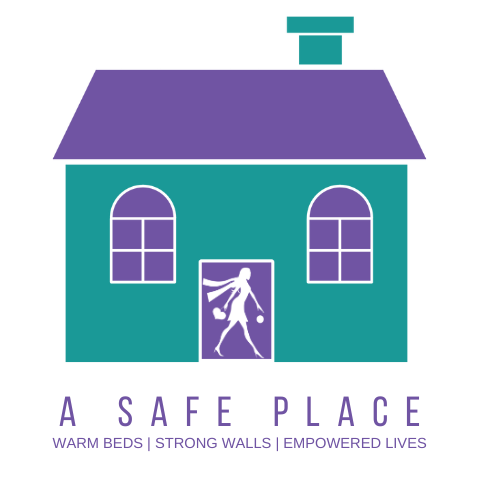
A Safe Place
Domestic Violence Shelter
VISION:
A Safe Place Will Assure Survivors And Their Children A Comprehensive Treatment Process In A Safe And Secure Environment In Jefferson County.
MISSION:
To Provide, With Dignity And Respect, A Comprehensive, Quality Program Including Education, Therapy/Counseling, Shelter Advocacy, Accessibility, Referral Network, Etc. To Any Battered Survivor And His/Her Children.
Donate:
Please click here to donate to A Safe Place. NOTE: Please include “A Safe Place” in the comment section of the donation form to dedicate your funds directly to them.
Viewing this website could place you in danger.
Computer use can be monitored and is impossible to completely clear searches.
Please ensure you are using a safe computer.
If you are in danger and do not have access to a safe computer, call our 24-hour crisis hotline at 636-232-2301 or call the National Domestic Violence Hotline at 1-800-799-SAFE.
If you are at a safe computer, read below for steps to stay safe.
Steps to Stay Safe
Use a safe computer at a library or community center. This is especially important when researching escape plans. Searching for bus tickets, shelter information, housing, or classified ads on a home computer can alert your abuser and increase your risk.
If you bookmark this or any other site about domestic violence, your abuser may see your computer activity. If you can, clear all web browser cache, cookies, and history. See instructions below for reducing risks.
Instructions for Internet Explorer
1. To delete temporary internet files, cookies (cryptic bookmarks that a Website can place on your computer to acknowledge your visit) and web addresses in your history:
2. On the menu at the top of the browser window, click on Tools>Internet Options…
3. In the dialog window that opens, click on the “General” tab.
4. In the section labeled “Temporary Internet Files”, if you wish to delete all files and cookies, click on the “Delete Files…” button. A confirmation dialog will open asking if you want to delete all files in your temporary internet folder. Click “OK.”
5. If you wish to selectively delete files and cookies, click on the “Settings…” button. A dialog window will open. Click on the “View Files…” button. A window will open with a list of all your temporary internet files and cookies. You can highlight the files you wish to delete and hit the delete key or click Edit>Delete.
6. To empty the History folder, click on the “Clear History” button and then the “OK” button.
TESTIMONIAL
Now… we are happy. We don’t have much, but we have each other, tons of good times and a sense of security. Life is good.”
SHELTER
A Safe Place is a residential shelter and program providing services to meet immediate needs of domestic violence survivors and their children. Abuse may be physical, sexual, emotional, verbal, psychological, or the destruction of property or pets..
Children who grow up in violent homes frequently learn violence as an acceptable means of resolving conflict or exerting control. These children are more likely to become victims or abusers as adults. A Safe Place provides a comprehensive program for the survivor and family, teaching healthy conflict resolutions and lifestyles.

Living Quarters
The emergency shelter accommodates six families in a community living home until they can support themselves or family.

Daily Activities
Residents share in daily activities and learn skills such as cooking, parenting education, and other life skills.

Goal-Based
Residents agree to a goal-based program which focuses on safety, healing, and financial independence.
KEY BENEFITS
Access to Care
Pets Referral Program
Referral & Resourcing
24-Hour Staff
Therapy, Counseling, & Coaching
Perpetrator Referral
SERVICES
Shelter Care
Survivors learn to break the cycle of violence through individual counseling, support groups, education, comprehensive parenting, fitness, and wellness programs. Feelings of dependency are replaced with self-sufficiency. Self-esteem, assertiveness, communication, and decision-making skills are taught, and assistance with nutrition, budgeting, housing, job searching, and career planning is provided. Additional services include:
- 24-Hour Crisis Hotline
- Emergency Shelter Program
- Residential Shelter Program
- Individual and Group Therapy
- Life Skills Group
- Domestic Abuse Education Group
- Court Advocacy
- Recreational Activities
- Child Play Therapy
- Art Therapy
- Crime Victims Advocacy
A Safe Place empowers survivors and their children to rise above the pain of domestic abuse and begin a safe and healthy life.
Community Groups
DOMESTIC VIOLENCE SUPPORT GROUP5
SEXUAL ASSAULT/ABUSE SUPPORT GROUP
These support groups, free and on-going, empowers survivors to rise above the pain of domestic abuse and begin a safe and healthy life.Learn from others’ experiences and support each other in the process of healing, change, and transformation.
Resources
Speak With Our Staff
Receive counseling, advocacy, referrals, and other services
636-232-2301
Missouri Coalition Against Domestic Violence
State-wide domestic violence resources and network
www.mocadsv.org
National Coalition Against Domestic Violence
National domestic violence resources and network
www.ncadv.org
Secret Financial Escape Plan
Steps to quietly build a credit history
https://www.nasdaq.com/articles/secret-financial-escape-plan-domestic-violence-victims-2014-12-29
If you know a friend of loved one who is being abused, consider taking these steps:
Set up a time to talk. Try to make sure you have privacy and won’t be distracted or interrupted. Let her know you’re concerned about her safety.
Be supportive. Listen to her. It may be very hard for her to talk about the abuse. Tell her that she is not alone and that people want to help.
Offer specific help. You might say you are willing to just listen, to help her with child care, or to provide transportation, for example.
Keep in mind that you can’t “rescue” your friend. She has to be the one to decide it’s time to get help. Support her no matter what her decision.
Let your friend know that you will always be there no matter what.
More Information:
Know the different warning signs of abuse.
Learn more ways to help a friend or loved one who is being abused.
Call the National Domestic Violence Hotline at 800-799-7233 or 800-787-3224 (TDD).
STORIES
A Safe Place is the only domestic violence shelter in Jefferson County.
A Safe Place was founded in 1987 to serve survivors of domestic violence. In 1998, the shelter opened at a new, undisclosed location to provide increased care and protection to the residents.
2023 Impact
- Received 1,066 hotline calls
- Offered 4,515 nights of safety
- Assisted with 98 orders of protection
- Provided 288 hours of court advocacy for survivors
- Provided 49 hours of professional therapy
- Provided 197 hours of crisis intervention services
- Provided 4,814 hours of case management services
- Unmet requests for shelter: 495 women, 275 children, and 4 men
In 2004, I was involved in a custody case due to domestic violence. I worked with A Safe Place to create a plan that would allow me to get out. During my stay at the shelter, I received more resources and support than I could have ever imagined. My healing process began, and I was finally gaining confidence and peace I had lost so long ago. My girls also had a safe place where they could talk about their experiences and find healing.
When I left the shelter, I couldn’t afford a new place to call home. I had to go back to a former residence known by my abuser. Shortly after I moved, he broke into my home and assaulted me and my best friend, threatening both of us with a knife. Thankfully, I escaped without injury, but my friend was hurt. The police came and I filled out another restraining order. Because I didn’t feel safe staying there with my children, I was forced to move in with my family. I did not want to burden them and I feared for their safety, but I had nowhere else to turn.
If I had access to transitional, safe housing after my stay at A Safe Place, I would not have been assaulted again or placed my family at risk. A Safe Place played a huge role in my journey to freedom from the abuse. I am where I am today because of the services they provided me at such a crucial time in my life. I have since moved on to a successful career, safe home life, happy family, and healthy marriage. If transitional housing had been available, I know the next step in my journey would have been less traumatic.
The continued safety net of A Safe Place would have given me the additional leverage needed to confidently take those steps back into society. Had transitional housing been available, it would have given me the opportunity to safely establish the financial stability and structure needed for a fresh start. Transitional housing allows survivors to prosper while still feeling safe. I hope that other women find the strength and courage to leave their abusers, and that, with your support, they have the resources and the time to safely gain full independence and stability.

